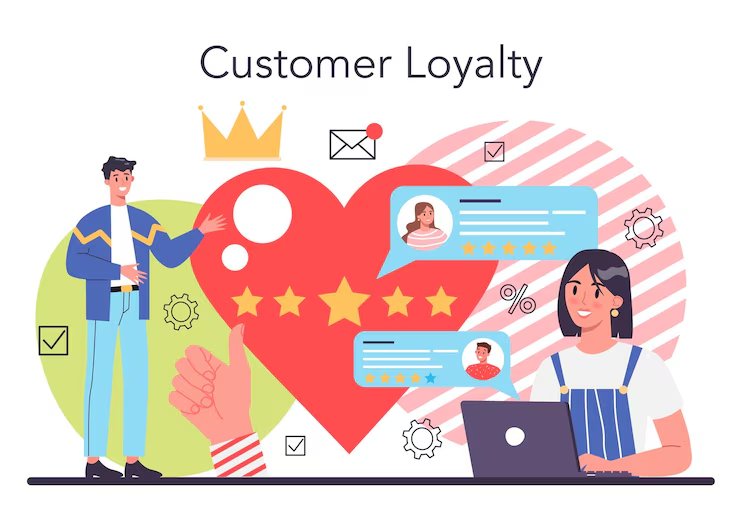News
Tax Talk Newsletter Winter 2025
Budget 2025 Business Boost 
Investment Boost has passed into law, meaning a major new tax incentive to encourage businesses to invest, grow the economy, and lift wages is now in place, Finance Minister Nicola Willis says.
“Investment Boost takes effect immediately. This means businesses that go out today and buy machinery or tools or equipment or vehicles or technology can immediately deduct 20 per cent of that cost from taxable income – meaning a much lower tax bill.
“The feedback to Investment Boost has already been massive, with businesses telling us it will be a game-changer.
“This change will benefit farmers, tradies, hairdressers, manufacturers, and other businesses by helping them invest in productivity improving assets. It is all designed to help firms become more competitive and, therefore, able to lift workers’ wages.
“The Treasury and Inland Revenue estimate Investment Boost will improve economic growth, lifting New Zealand’s GDP by 1 per cent, wages by 1.5 per cent and our capital stock by 1.6 per cent over the next 20 years, with around half these gains expected in the first five years.
“Investment Boost applies to new assets purchased in New Zealand as well as new and used assets imported from overseas. It includes commercial buildings but excludes land, residential buildings, and assets already in use in New Zealand.
“There’s no cap on the value of eligible investments. All businesses, regardless of size, can benefit.
“Investment Boost delivers more bang for buck than a company tax cut because it only applies to new investments, not those made in the past.
“The policy will reward businesses who make new investments by reducing their tax bills in the year they purchase new assets. For example, with Investment Boost, an advanced manufacturing firm that purchases a $200,000 environmental test chamber would reduce its tax bill by more than $10,000 in the year of purchase.
“After many difficult years, New Zealand is once again on a steady economic growth path, thanks to our careful economic management supporting lower inflation, lower interest rates, and more business-friendly policies.
“Businesses have been knocked around by challenging local and international economic conditions. This tax incentive shows that we are backing them to succeed.
“Now is the right time to support New Zealand’s economic recovery by making it easier for businesses to invest, hire more workers, pay them better, and contribute more to our long-term prosperity.
“It is only through a strong economy we can create jobs, lift incomes and afford the frontline public services like schools, hospitals and Police that Kiwis deserve.”
Small size means big impact for customer service
One of the advantages of being a small firm is you can look after your customer in a way the big firms can’t or don’t want to.
A marketing guru from Melbourne once said: “Love your customers to death”.
Here are some thoughts:
- Get a real person to answer the phone.
- Answer the phone quickly.
- Keep in touch. How about a tip sheet say once every three months or even once a year if you haven’t got much to talk about. It is so easy and economical to communicate with emails and text messages. Even a dentist could send a tip sheet. How about telling us about the teeth that don’t get sufficiently brushed? How long should we brush? What type of toothbrush should we use, what type of dental floss, the best unit for water flossing? Which order - floss, water floss, then brush?
- For the bigger customers, get on the phone if you want to know what they thought of your service. There’s no point in sending email requests for reviews as the big firms do - they just get deleted, don’t they? Have just a couple of questions to ask - remember, you customer us busy.
- Smile. It’s welcoming. People can sense, even on the phone, whether you are smiling.
- Never start your correspondence with “Dear valued customer”! If I’m valued then why don’t your use my name? Also, spell the name correctly. A marketing company once wrote to Norman “Dear Normal”!
- Remember customer preferences. It makes them feel important.
Customers don’t like smart alecs
Business competitors can sometimes get carried away with how they promote themselves as better than you. Especially when times are tough, it’s tempting to try to discredit a rival, but it rarely succeeds in the long run.
One recent example was very public. A local newspaper owner published an article that said a competitor’s newsprint was environmentally dodgy. What he failed to consider was that the print process was the same as for his own paper.
The competitor didn’t engage in the argument, but their printer did. It resulted in a correction and apology.
If you are going to compete, do it on the basis of what you do best. Promote your positive points of difference, not what a rival might do badly.
Customers don’t like smart alecs.
Tax on charity business income being considered
The government is considering taxing the business income of charities, bringing New Zealand in line with other OECD countries.
There are two types of charitable businesses:
Directly related to charity work, like school.
Not directly related, like a food manufacturing business run by a charity.
The proposed tax changes focus on the second type.
Right now, it’s just a discussion, nothing has been decided yet.
Refurbishing an asset recently acquired
If you buy something like a rental property or a piece of machinery and it needs repairs, you can’t just claim those costs as an expense.
Instead, they may have to be added to the asset’s purchase price.
Here’s an example:
You buy a building, and during your pre-purchase inspection, everything looks fine. A year later, you discover the roof is leaking and some floor joists are rotten.
These issues weren’t obvious at the time of purchase and didn’t affect the sale price, so fixing them is tax deductible.
However, if the need for the work was apparent at purchase and reflected in a reduced price the expenses must be added to the cost. Also, if the building was usable to earn some sort of income but wasn’t able to be used for the intended purpose, you must add the refurbishment expenses to the cost.
The same goes for an existing business buying a car or piece of machinery that can’t be used until the work is completed.
Those costs aren’t deductible as expenses; they’re considered part of what you paid for the asset which may qualify for depreciation.
Are flu vaccinations paid for by an employer subject to PAYE or FBT?
Question:
Employees may either use a flu voucher provided by ABC Limited or pay for the vaccination and be reimbursed by the company.
Does either option give rise to PAYE or FBT issues for ABC Limited?
Answer:
The provision of a flu voucher or a reimbursement to an employee for a flu vaccination will not give rise to any PAYE or FBT issues.
FBT
Section CX 24 provides an FBT exemption for benefits provided in relation to an employee’s health or safety. This exemption applies if the benefit satisfies all of the following criteria:
It is related to the employee’s health and safety,
It is aimed at managing risks to health and safety in the workplace as provided under the Health and Safety at Work Act 2015, and
It is a benefit that would be excluded under s CX 23 if it were provided on the employer’s premises.
Under s CX 23, a benefit (except concessional travel, accommodation, or clothing benefits) provided to employees that is used or consumed on the employer’s premises is exempt from FBT.
In this case, no FBT arises if ABC Limited provides a flu voucher to its employees as the flu voucher benefit is a health and safety benefit to manage illness risks within the workplace, and it would have been exempt if it was provided at the employer’s premises.
PAYE
Prior to a change in the law, the reimbursement would have given rise to a PAYE liability. However, effective from 1 April 2025, with application for the 2025-26 and later income years, an exemption applies so that an amount an employer pays to or on behalf of an employee in relation to the employee’s health or safety is exempt income of the employee. The exemption applies provided that the payment is for a benefit for managing risks to health and safety in the workplace, and that would have been exempt from FBT under s CX 24 if the benefit had been provided as a non-cash benefit to the employee (s CW 17D).
If ABC Limited reimburses the employees for the vaccination cost, no PAYE issue arises, and the reimbursement should be treated as exempt income of the employee. This is because the reimbursement is in relation to the employee’s health and safety for the purposes of managing health and safety risks at the workplace and would have been exempt from FBT if it had been provided as a non-cash benefit.
References
Income Tax Act 2007, ss CX 23, CX 24, CW 17D.
Do ACC levies apply to a shareholder salary paid from rental income earned by a company?
Question:
A company owns a rental property from which it derives rental income. This is the company’s only source of income. The rental income is passive income as it does not rely on any person’s personal effort to earn it.
The company has paid its net profit from the rental activity to its shareholder as a shareholder salary.
Does the company and individual need to pay ACC on the shareholder salary, even though the rental is passive income?
Answer:
In the case of an ordinary company (ie. other than an LTC), irrespective of whether the income is passive or active income in the hands of the company, the payment is subject to ACC when paid to the shareholder as a shareholder-employee salary. This is the position regardless of whether PAYE is deducted or not. The income does not retain its nature and source when paid to the shareholder.
A shareholder-employee salary is meant to be a payment to the shareholder for services provided to the company by the shareholder in their capacity as an employee of the company. Therefore, it is income from employment, wages, or salary, and subject to ACC.
References
Income Tax Act 2007 ss RD 3B, RD 3C
Accident Compensation Act 2001 ss 14, 15
Auto save not always the saviour it should be
A worker was in the office late, polishing a complicated cash flow model, using the cloud.
Trusting auto-save, she didn’t bother making a manual backup. At midnight, the wi-fi dropped and the latest version vanished.
Oops. Gone were three hours of detailed work, with her spreadsheet replaced by an old version missing all the updates.
After a lot of frantic clicking – and a lot more muttering – she had no choice but to start again.
She now had not only the hassle of added work time, but also the risk of error because she was now under even more pressure.
Lesson learned: Even with the cloud it pays to hit “Save As” regularly and keep a copy on your own computer.
Tripped up by online tricks
Booking travel and managing your life online looks easy – the websites look slick, the offers are tempting, and the tech companies always know just what to say.
But even the smartest among us can find ourselves tripped up. The following real-life examples are reminders that the online world can be more confusing than it should be. Our online user takes up the story.
The rail mix-up
I asked Google for “Kiwi Rail excursions”, as I was keen to go on one of the country’s famed rail journeys. A promising-looking
website popped up, so I booked my spot. It wasn’t cheap, but I figured that’s just what top-tier travel costs. Only later did I realise that while I had booked the correct train, I’d done so through a third-party operator who charged much more than if I’d gone directly to Kiwi Rail. The journey was cancelled due to Covid, and I got my money back, but it was a lucky escape.
An Easter flight that wasn’t
I needed to book a flight to Nelson and I knew Air New Zealand was the way to go. I typed it into the search bar, clicked on the first link that popped up, and booked the tickets. All looked fine until I realised
I hadn’t booked directly with the airline, but through a third-party website offering what looked like a discount. I crunched the numbers – the “20% off” was actually
about 20% more than what I would have paid on the airline’s official site.
How easy it is to be misled by search engine tricks.
Dropbox drama
Another near slip-up came via a message supposedly from Dropbox. It said my laptop had only 100gb of storage left, and unless I upgraded my subscription, I’d lose access. I almost reached for my wallet, but fortunately I consulted the household IT expert– my grandson. After a quick glance, he reassured me that not only did I already have a Dropbox subscription and it had more than enough storage to spare. Grandparent 0, grandson 1.
Lessons learned
What I learned from these experiences was -
- never assume the first link on Google is the right one. Always look for the official website.
- just because something looks like a bargain doesn’t mean it is. Online booking platforms make money by offering the convenience of “any time, anywhere” systems, but sometimes that “deal”
- just isn’t what it seems to be.
always consult someone tech-savvy before clicking “buy now” on anything digital.
In the end, the internet remains a powerful tool, but one that needs to be handled with care.
Coffee a classic test of pricing strategy
Terrible coffee crops in places like Brazil and Vietnam have meant there’s a shortage of beans – that’s putting prices for the Kiwi cuppa through the roof.
Cafés who have tried to keep prices down by absorbing previous minor coffee price rises have a dilemma. Do they try to live with a big price rise by making a marginal increase, or put prices up in line with the wholesale price? The smart cafés look regularly at their margins. If the overall prices that go into making a cup of coffee – including milk, wages, rent etc – are up 20 percent, they lift their prices accordingly.
There’s always the classic danger of not lifting prices in small bites regularly. If you don’t,
you’ll be forced to make an even bigger price rise later. The same applies to any business.
Important: This is not advice. Clients should not act solely on the basis of the material contained in the Tax Talk Newsletter. Items herein are general comments only and do not constitute nor convey advice per se. Changes in legislation may occur quickly. We therefore recommend that our formal advice be sought before acting in any of the areas. The Tax Talk Newsletter is issued as a helpful guide to our clients and for their private information. Therefore it should be regarded as confidential and should not be made available to any person without our prior approval.




